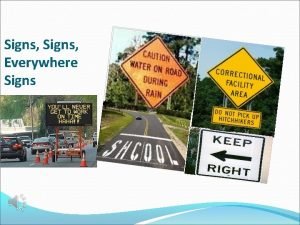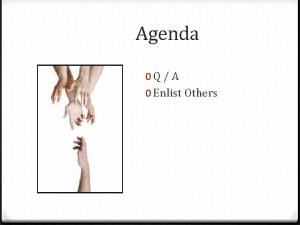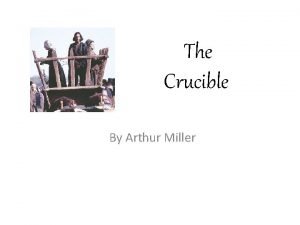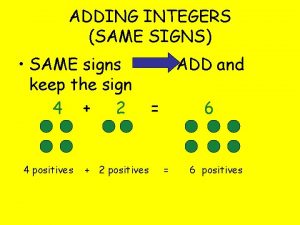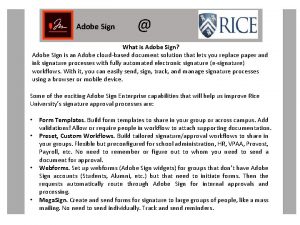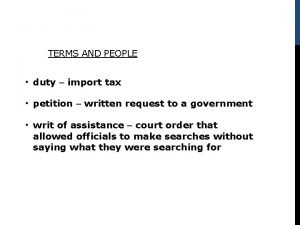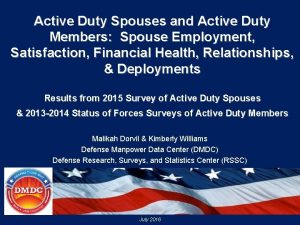TERMS AND PEOPLE enlist sign up for duty
















- Slides: 16

TERMS AND PEOPLE • enlist – sign up for duty • continental – paper money printed by the Continental Congress

TERMS AND PEOPLE • civilian – person not in the military • George Rogers Clark – Virginian who led American troops against the British on the western frontier

The American Revolution and Society

OBJECTIVES • Discover the role that African Americans played in the American Revolution. • Find out how the war affected women and other civilians. • Learn about the impact the war had on Native Americans.

How did the American Revolution affect society? While Continental soldiers faced battle in the thirteen colonies, other people also felt the war’s effects. American Revolution African Americans Women Native Americans

African Americans fought on both sides during the American Revolution. Patriots African Americans British

Free African Americans fought for the Patriots from the beginning, seeing action at several key battles. • Lexington and Concord • Bunker Hill • Saratoga Some enslaved people also supported the Americans after escaping from their owners.

If they fought for the British, however, enslaved people were offered something of immense value. Freedom To gain their freedom, thousands of enslaved African Americans fled their owners and joined the British.

At first, George Washington refused to accept African American soldiers. Washington reversed his policy, however, when so many African Americans began to join the British forces. By the end of the war, more than 7, 000 African Americans had fought for the Patriots.

Women were also affected by the war, often taking on new responsibilities. Men who enlisted were away for at least one year. At home, women • planted crops • tended livestock • ran businesses

Some women followed their husbands into battle. They provided supplies, food, and water. They also cared for the wounded. Some, like Molly Pitcher, stepped in to fight when their husbands fell.

Soldiers and civilians alike were affected by the financial burdens of paying for the war. Amount printed • Congress printed continentals to pay expenses, but the money soon lost its value. Continental Value • Congress had no power to tax, and the states had little money.

Native Americans also felt the war’s effects. Native Americans British Most Native Americans sided with the British, fearing an American victory would bring more settlers onto their lands.

Many Indian groups, however, were bitterly divided about which side to support. Some split into warring factions. A deadly epidemic added to the crushing effects of war. Infighting Smallpox Native Americans Western raids

George Rogers Clark pushed west to strike British forts on the frontier. Clark won key battles against the British and their Native American allies. These victories allowed settlers to remain on the frontier.

Quiz a. John Paul Jones 1. paper money printed by Congress 2. head of a militia force that defended the frontier in the late 1770 s 3. commander of the American ship Bonhomme Richard 4. sign up for duty b. privateer c. continentals d. Bernardo de Gálvez e. George Rogers Clark f. enlist 5. Most Native Americans sided with the (Patriots/British) in the Revolutionary War. 6. The British offered slaves (Money/Freedom) if they would come and fight for their cause. 7. The Continental Congress (collected taxes/printed money) to pay for the expenses of the Revolutionary war. 8. By the end of the war, more than (7, 000/10, 000) African Americans had fought for the Patriots. 9. At the beginning of the war all African Americans had to choose which side they would fight for. Which side should they have chosen? Why?
 Sign shapes meaning
Sign shapes meaning Renal edema ppt
Renal edema ppt Enlist others
Enlist others Reverend parris
Reverend parris Advapi logon process
Advapi logon process Like terms and unlike terms in polynomials
Like terms and unlike terms in polynomials What are the like terms in the algebraic expression
What are the like terms in the algebraic expression Brudzinski and kernig sign
Brudzinski and kernig sign Same sign add different signs subtract
Same sign add different signs subtract Name terms sign symbol is known as
Name terms sign symbol is known as Limitations of people as media
Limitations of people as media Jvp up to mandible คือ
Jvp up to mandible คือ Trousseau sign
Trousseau sign Hypermagnesemia causes
Hypermagnesemia causes Black eyed peas
Black eyed peas Kontinuitetshantering i praktiken
Kontinuitetshantering i praktiken Typiska drag för en novell
Typiska drag för en novell
